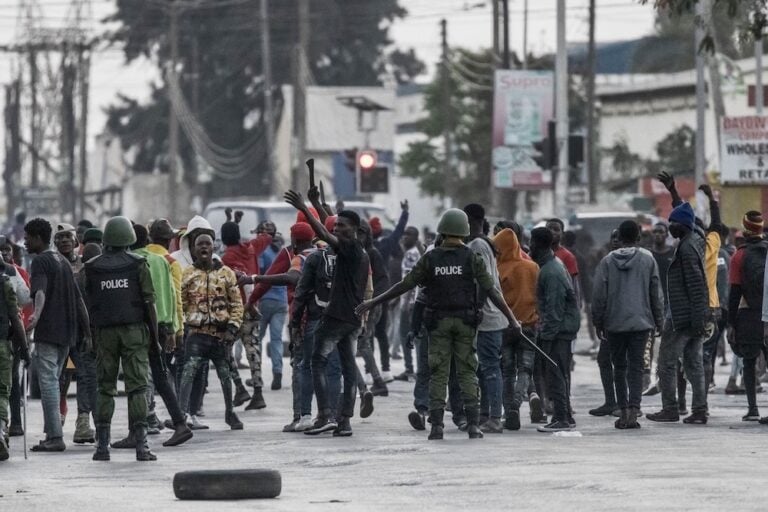(MISA/IFEX) – On 9 August 2001, Zambia’s director of public prosecutions (DPP), Mukelebai Mukelebai, ordered police to stop criminal proceedings against privately owned “Post” newspaper deputy-news editor Amos Malupenga, and a former deputy minister, Newton Ng’uni, who faced a possible “Defamation of the President” suit. Mukelebai said through a spokesperson that he had studied the […]
(MISA/IFEX) – On 9 August 2001, Zambia’s director of public prosecutions (DPP), Mukelebai Mukelebai, ordered police to stop criminal proceedings against privately owned “Post” newspaper deputy-news editor Amos Malupenga, and a former deputy minister, Newton Ng’uni, who faced a possible “Defamation of the President” suit.
Mukelebai said through a spokesperson that he had studied the docket against the two men brought by the police and had concluded that the article carried by the “Post” newspaper in its 2 August edition, titled “Chiluba has stolen and shattered to pieces Zambia’s dream”, was not defamatory of the president. Rather, the DPP said the article was a mere expression of a “personal political opinion” by Ng ‘uni, which should not have been construed by police as intended to bring the president into hatred, ridicule or contempt. Mukelebai had thus directed the police to discontinue criminal proceedings against Malupenga and Ng’uni.
Background Information
On 2 August, police recorded a “warn and caution” statement from Malupenga, author of the article, and Ng’uni, a sympathiser of the opposition Forum for Democracy and Development (FDD), who gave the newspaper the story. In an interview with the Zambia Independent Media Association (ZIMA) shortly after being questioned by police, Malupenga said he had not been charged but was informed that the police were investigating the matter and would “get back to me when they are through.”
“Defamation of the President” is an offence proscribed under Section 69 of the Zambian Penal Code. Under this section, it is an offence for anyone, with intent, to bring the president into hatred, ridicule or contempt, or to publish any defamatory matter insulting of the president. The insulting matter may be in writing, print or word of mouth or in any other form or manner. Upon conviction, one may be sentenced to prison for a term not exceeding three years. There is no provision for a fine.


